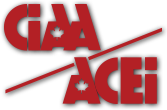Insurance is an essential part of our modern world. Before a new office complex rises, the builder seeks insurance protection from the many dangers during construction: fire; collapse; failure to complete on time…and so on. When a new supertanker is being built, engineers from the marine insurance underwriters are called in at the blueprint stage. They see the new ship through every phase of its construction. Where are the watertight hatches located? What radar and other electronic gear are provided? How are oil spills guarded against? Until satisfactory answers are received to these and many other questions, insurance can’t be issued and the ship cannot be built!
Without insurance, business people, engineers, architects, doctors, drivers and homeowners would all face the possibility of sudden shocking loss – even ruin.
When disaster strikes a community – fire, chemical spill or hurricane – insurance people are among the first on the scene. They help organize temporary repairs so that partially damaged buildings won’t be further damaged. They arrange for building materials and workmen to be brought in. And they start issuing cheques for repair, replacement and temporary accommodation.
These are just a few examples of the kind work insurance people do. And the list is growing. Insurance people are involved in space programs, in multi-national exploration activities and in environmental concerns. Communications satellites need to be insured, and so do professional hockey teams.
There are many general insurance companies doing business in Canada and the business employs over 120,000 people across the country, or approximately 1% of the total Canadian work force.
Benefits and Qualifications
Apart from job satisfaction, a career in general insurance has many other attractions. Starting salaries are good and advancement can be rapid. Many of the jobs involve traveling across Canada and even abroad. Insurance organizations offer exceptionally good fringe benefits such as extended health care and dental plans, supplementary insurance and pension plans, with some companies offering to provide low interest mortgages to help employees buy their own homes. And, since general insurance is a growing industry, most insurance firms offer a remarkable degree of job security.
Some firms require that career oriented people have a university degree. Other companies are actively seeking high school and community college graduates. There’s always room for top graduates from all educational levels particularly if they take advantage of company training programs.
Choice – Challenge – Satisfaction – Opportunity
Where Are The Jobs?
Seven major types of employers are actively seeking qualified individuals:
- Insurance Companies
- Reinsurance Companies
- Insurance Agencies
- Brokerage Firms
- Adjusting Firms
- Insurance Associations
- Risk Managers
Insurance agents and brokers make the point of sale contacts with the insurance consumer. Insurance companies issue the policies, pay the claims, and provide the financial technical and administrative know-how that makes the whole system work. Adjusting firms investigate claims and try to satisfy both the customer and the company. Insurance associations provide information and educational services to the industry. Risk managers are employed in various industries and, in part function as commercial buyers of insurance products.
Insurance Companies
Insurance companies, including government operations in some provinces, have trainers and presidents, and all sorts of jobs in between. There are underwriters (who examine applications for insurance and decide what premium should be charged), field representatives (who call on agents and brokers), actuaries (who analyze statistics and develop pricing for the underwriter’s use), lawyers, accountants, systems analysis, marketing representatives, personnel specialists and a variety of others including management personnel and support staff.
Reinsurance Companies
Reinsurance companies provide insurance to other insurance companies and operate in a worldwide market; they offer interesting jobs at many levels both nationally and internationally.
Adjusting Firms
Many insurance companies have claims departments with staff adjusters, but a great deal of claims handling is done by independent adjusting firms. These range in size from one-person operations to large organizations with hundreds of employers.
Adjusting firms offer everything from the normal range of information processing jobs to interesting work involving on-the-spot claims investigation, negotiation and settlement.
A wide variety of specialty adjusting careers exist – losses involving livestock, pleasure boats, stores and offices, fidelity and surety, business interruption, bodily injury and aviation losses to name but a few.
Specialty adjusting careers are more likely to be available in larger centers. Adjusters with firms in smaller cities and town will handle nearly every variety of claim that occurs in their area.
As insurance coverages become more complex and the type of claims more intricate, opportunities abound for skilled, knowledgeable adjusters.
Insurance Agencies/Brokerage Firms
Insurance agents and brokers make the sales contacts with insurance purchases; private consumers or commercial or industrial firms. Usually they have a contract with one or more insurance companies, to sell those companies’ policies and earn a commission. They must be highly knowledgeable and able to demonstrate that knowledge to customers and prospects.
Once the client’s insurance needs have been analyzed, the broker or agent arranges the coverage with one or more insurance companies. In addition to sales personnel, the larger of these firms employ accountants, systems analysts, human resource and other managerial and administrative professionals.
Insurance Associations
Associations play an important part in the general insurance industry. They collect information, statistics, research and prepare new policy forms, prepare basic material on pricing for the use of their members and work with governments and consumer groups.
There are associations representing companies, agents, brokers, and adjusters. Some associations, such as The Insurance Institute of Canada, serve all sections of the general insurance industry.
Associations employ a number of specialists such as statisticians, computer experts, actuaries, lawyers, and many generalists whose main qualification is a broad knowledge of the industry.
Risk Managers
All businesses purchase insurance or develop loss prevention techniques to avoid or absorb risk. In the largest commercial operations a risk manager is appointed to concentrate on this very important aspect of protection of the firm’s assets.
Risk managers may come from the accounting divisions of companies but many, if not the majority, have had an initial education and exposure to the insurance business.
Education and Training
While many universities and community colleges offer fulltime programs in insurance administration, most people come into the industry with a good general or specialist education. Knowledge of insurance contracts, types of insurance, legal practices is acquired on the job and through company training courses.
The Insurance Institute of Canada is the professional educator of the general insurance industry. The Institute sets professional standards for the industry through education programs that lead to a range of designations, including the internationally recognized Chartered Insurance Professional (CIP) and Fellow Chartered Insurance Professional (FCIP).
Graduates of these programs continue to enhance their expertise, experience and professional relationships by participating in the Institute-sponsored CIP Society.
The Institute, through its committees of experts, has established a wide range of educational courses which are conducted through distance and virtual learning, and at many community colleges and universities across Canada.




